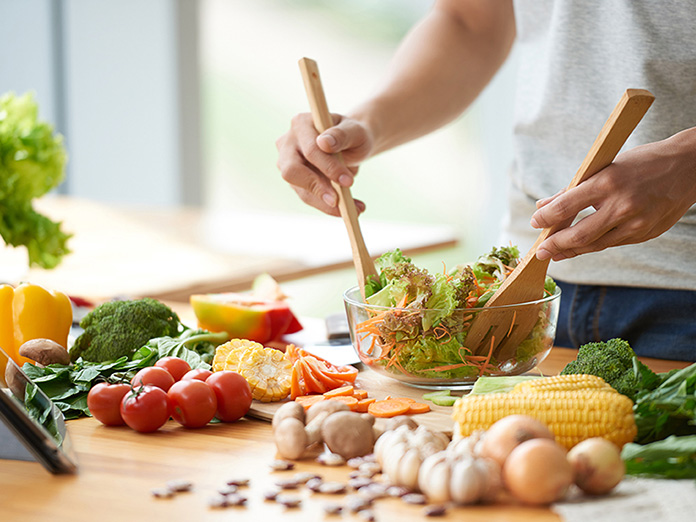Live
- SUCI to contest for Tirupati Assembly
- VIT Engineering Entrance Exam (VITEEE) from today
- BJP demands removal of ‘biased’, ‘incompetent’ officers
- Prof Vani takes charge as Dean in SPMVV
- My Dear Donga: trailer get grand launched
- Supreme Court reserves verdict
- Poll battle begins
- Phase 1 polls in 102 seats across 21 states today
- 39 candidates file papers on Day 1
- ED arrests AAP MLA Amanatullah Khan in Waqf Board appointment scam
Just In

A balanced diet is a cornerstone of health Women have special nutrient needs, and, during each stage of a womans life, these needs change Nutrientrich foods provide energy for womens busy lives and help to reduce the risk of disease says Dr Deepa Agarwal Chief Nutritionist, Tanvir Hospital
A balanced diet is a cornerstone of health. Women have special nutrient needs, and, during each stage of a woman's life, these needs change. Nutrient-rich foods provide energy for women's busy lives and help to reduce the risk of disease says Dr Deepa Agarwal Chief Nutritionist, Tanvir Hospital
Iron-rich foods
Iron is one of the keys to good health and energy levels in women prior to menopause. Foods that provide iron include red meat, chicken, turkey, pork, fish, kale, spinach, beans, lentils and some fortified ready-to-eat cereals. Plant-based sources of iron are more easily absorbed by your body when eaten with vitamin C-rich foods. So eat fortified cereal with strawberries on top, spinach salad with mandarin orange slices or add tomatoes to lentil soup.
Folate (and folic acid) during the reproductive years
When women reach childbearing age, they need to eat enough folate (or folic acid) to help decrease the risk of birth defects. The requirement for women who are not pregnant is 400 micrograms (mcg) per day. Including adequate amounts of foods that naturally contain folate, such as citrus fruits, leafy greens, beans and peas will help increase your intake of this B vitamin. There also are many foods that are fortified with folic acid, such as breakfast cereals, some rices and breads.
Daily calcium and vitamin d requirements
For healthy bones and teeth, women need to eat a variety of calcium-rich foods every day. Calcium keeps bones strong and helps to reduce the risk for osteoporosis, a bone disease in which the bones become weak and break easily. Some calcium-rich foods include low-fat or fat-free milk, yogurt and cheese, sardines, tofu (if made with calcium sulfate) and calcium-fortified foods including juices and cereals. Adequate amounts of vitamin D also are important, and the need for both calcium and vitamin D increases as women get older. Good sources of vitamin D include fatty fish, such as salmon, eggs and fortified foods and beverages, such as some yogurts and juices.
Foods and beverages to limit
To keep weight in check at any age, women should avoid excess calories from added sugars, saturated fat and alcohol.
Limit sweetened beverages, including regular soft drinks, candy, cookies, pastries and other desserts.
Limit alcohol intake to one drink per day, if you choose to drink and are of legal age. One drink is equal to 12 ounces of beer, 5 ounces of wine or 1.5 ounces of liquor.
Eat fewer foods that are high in saturated fat. Opt for low-fat or fat-free dairy products and lean proteins instead of their full-fat counterparts. Incorporate more plant-base protein foods, such as beans, lentils and tofu, into your diet.
Balancing calories with activity
Since women typically have less muscle, more body fat and are smaller than men, they need fewer calories to maintain a healthy body weight and activity level. Women who are more physically active may require more calories.
Physical activity is an important part of a woman's health. Regular activity helps with weight control, muscle strength and stress management.
- As told to D Shreya Veronica

© 2024 Hyderabad Media House Limited/The Hans India. All rights reserved. Powered by hocalwire.com







